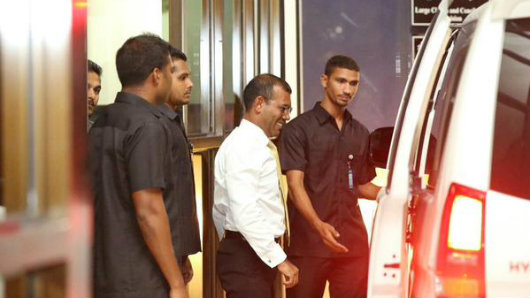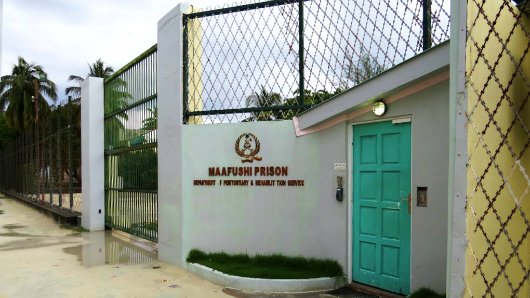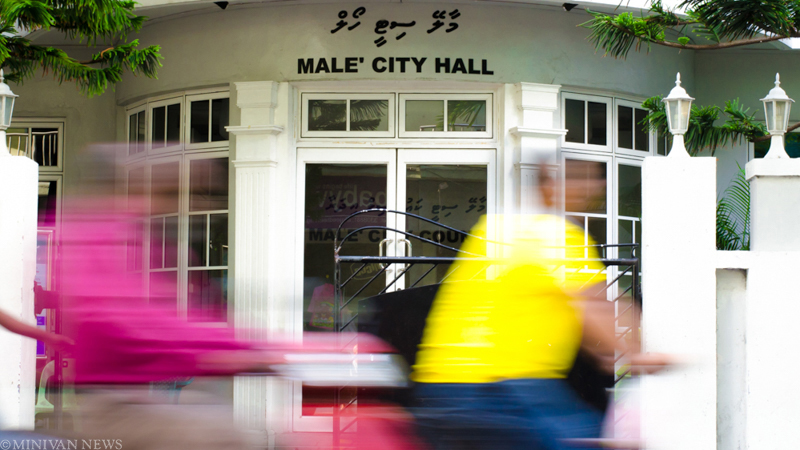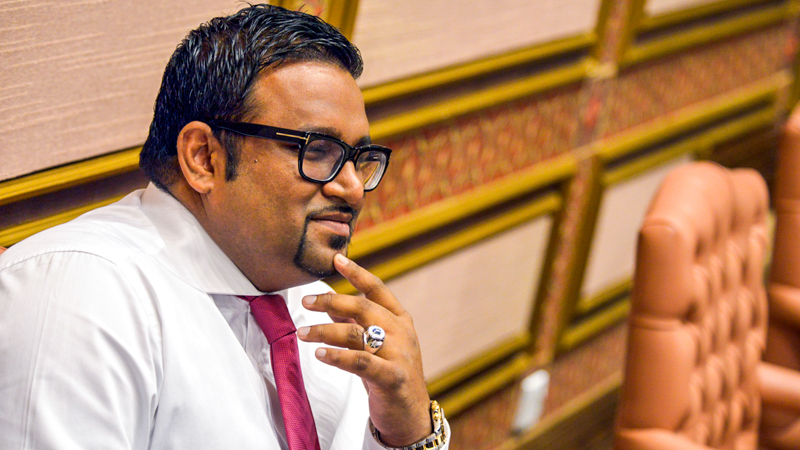Former president Mohamed Nasheed has been transferred from police custody today to a low security jail an hour away from the capital Malé.
Nasheed is serving a 13-year jail term on terrorism charges relating to the detention of a judge during his tenure.
He was convicted on March 13, but was held at the Dhoonidhoo Island remand centre until the home ministry finished constructing a special apartment at the high security prison on Maafushi Island.
The Maldives correctional services today transferred Nasheed to Asseyri jail on Himmafushi Island temporarily, saying Nasheed will be taken to Maafushi jail when his apartment is completed.
The office said it is not yet certain when the apartment will be ready.
The opposition leader’s lawyers meanwhile expressed concern over the police’s alleged failure to inform them of the transfer.
“We continue to have grave concerns over his safety. The police should in any case inform lawyers before they transfer any prisoner from one place to the other,” lawyer Hassan Latheef said.
Former first lady Laila Ali in March appealed to President Abdulla Yameen to give her assurances of Nasheed’s safety, saying she had received information from credible sources that he may be assassinated in jail.
Home minister Umar Naseer has previously said the government “guarantees the safety, welfare and protection of former president Mohamed Nasheed while in custody.”
He was to be incarcerated in a 264-square foot furnished prison apartment in Maafushi jail with air-conditioning, a sitting room, a television and VCD player.
The special apartment would have a 1,087 square foot garden and Nasheed would be able to “live with other inmate friends,” Naseer said.
In response, the office of former President Nasheed released a statement claiming the cell being prepared to house the opposition leader was in an area of the jail deemed unfit for human habitation.
“The use of the cell being prepared in Maafushi jail was discontinued after the Human Rights Commission of Maldives and the International Red Cross and Red Crescent determined in 2009 that it was unfit to hold people,” the statement read.
“The toilet of the cell currently being prepared is inside the cell. It was built such that unclean odours and bacteria fans out to the whole cell. It is adjacent to the jail’s garbage dump. Germs, bacteria and unclean air constantly circulate inside the cell.”



